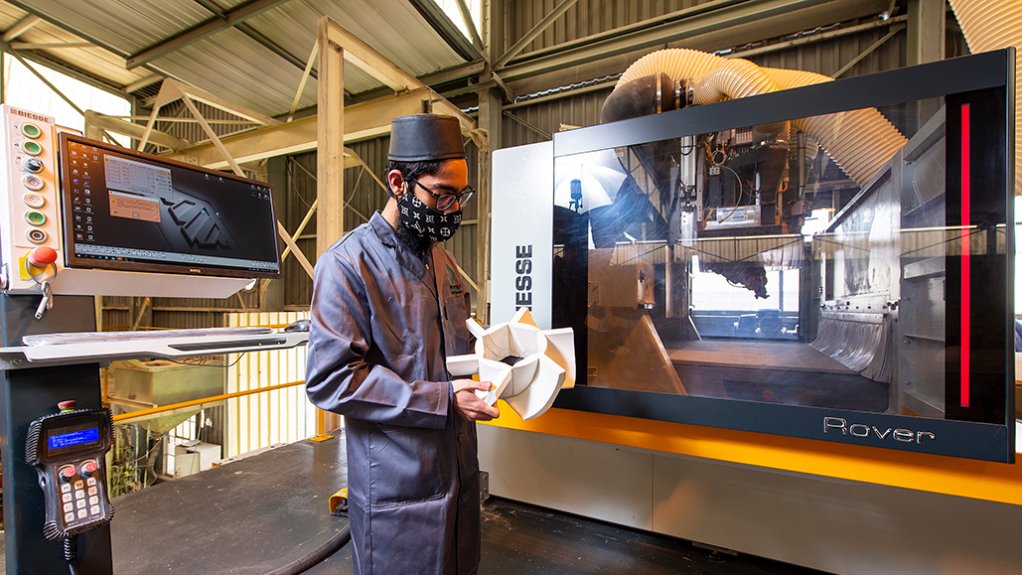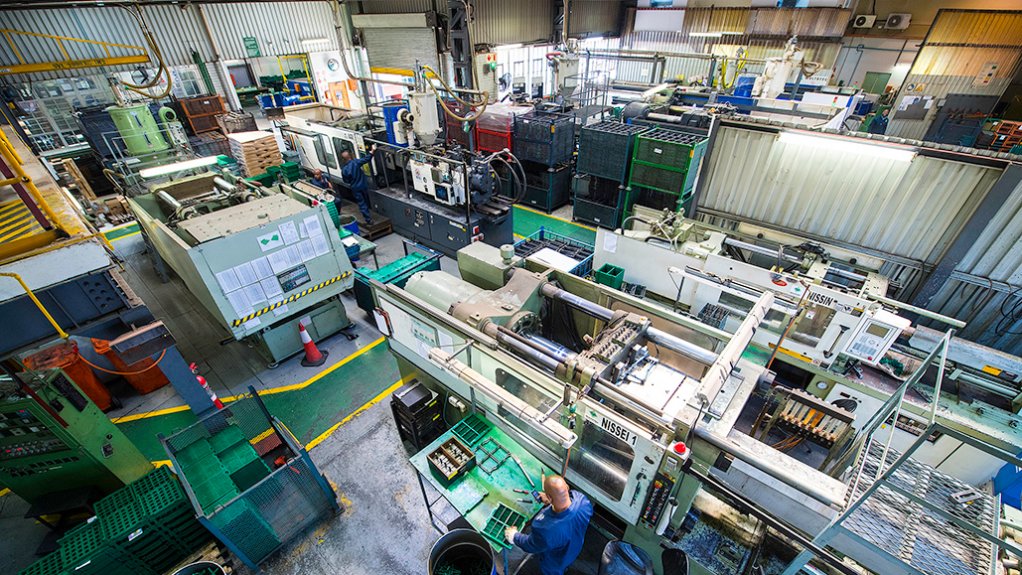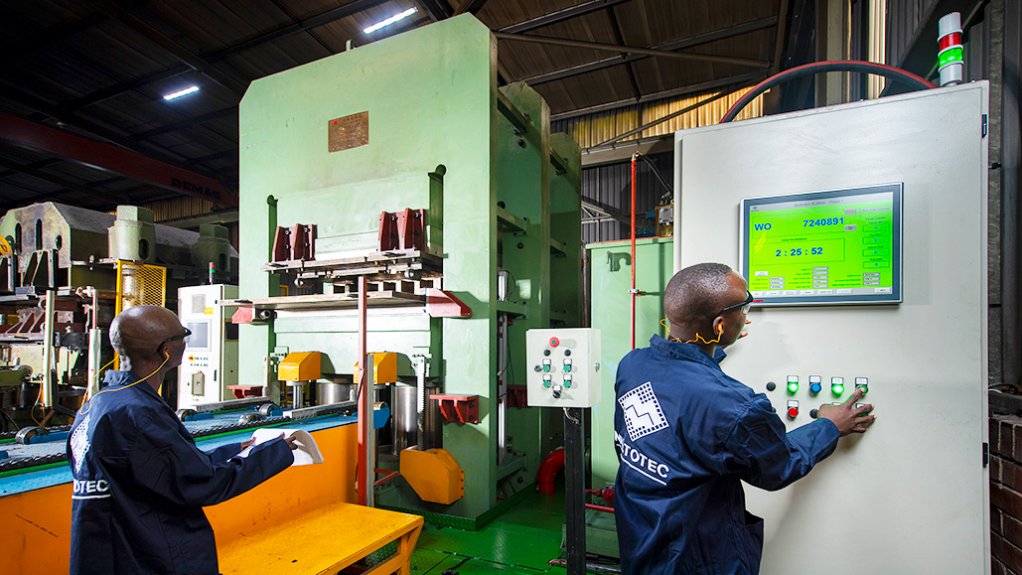Minerals processing equipment manufacturer Multotec states:
“In the long term, we would like to invest in Fourth Industrial Revolution technologies to modernise the way we produce. In South Africa, we would rather invest in a way that makes production easier for an operator while maintaining a certain quality. “We want to make sure that the operator gets the right information at the right time, and this we have to do for all our local factories,” states Multotec South African operations CEO Rikus Immink.
He notes that, as companies globally have been investing in incorporating artificial intelligence into their process plants, Multotec has spent the past five years developing its local capabilities to meet the demand for equipment that includes intelligent capabilities.
To further expand and incorporate this intelligent technology into its local product offering, Multotec has signed a partnership agreement with a company from Ireland.
Multotec will then use this intelligent technology and test the applications on pilot products such as centrifuges, screens and pumps before introducing these products to the local market.
Immink says this focus will result in the company using intelligent technologies that can provide real-time updates and information for process plant operators; as these technologies will also be included as a value-added in Multotec’s services for its customers.
Immink emphasises how incorporating these technologies further improves the investments that Multotec can make in modernising several of its local factories.
Manufacturing Investments
Multotec has installed rail-mounted manufacturing in its spiral factory; a modern, automatic flat welder for its wedge wire panels manufacturing; injection moulding machines for rubber screen panels; and new injection moulding machines for polyurethane cyclone and spiral concentrator parts.
This year, Multotec will invest in new hydraulic presses for its rubber mill linings and compressed rubber products to ensure that the company meets the demand for its rubber products from regions such as Africa, South America and Australia. He adds that this demand has increased since the initial impact of the Covid-19 pandemic.
“We are currently at full capacity on our mill linings and compressed rubber lining. We’re going to invest in two or three new hydraulic presses for our factories in South Africa and one in South America, and that will take us to the end of next year to get these delivered and installed.”
Multotec has 24 300 m2 of manufacturing space in 20 factories, producing locally manufactured processing equipment to the highest international quality standards to compete globally, adds Immink.
Multotec’s branches in Rustenburg, Secunda, Kathu, Middelburg, Richards Bay and Cape Town, are also equipped with local fabrication capabilities and strategic stockholding to support the requirements of regional Multotec customers.
About 13 locally manufactured Multotec product ranges have also been certified by the South African Bureau of Standards as meeting the threshold for local content.
“We class our product offering into regional and global products. Our global products offer growth aspects for our local manufacturing facilities. “These products include cyclones, compressed rubber products, sampling, spirals, screen panels and wear lining.”
Immink says Multotec’s focus on manufacturing products that contains 60% local content is driven by the implementation of Mining Charter III in 2018, which stipulates that a minimum content of 60% of mining goods must be manufactured or assembled in South Africa.
“We have also created a Multotec Services company, which will also be 51% black-owned, which uses localised labour at mine sites. About 94% of our labour comprises local employees at our Multotec Services branches.”
Manufacturing Supply Chains
Immink states that about 19% of South Africa’s manufacturing capacity is not being used.
He attributes this to a lack of demand for goods in South Africa, unreliable power supply from State-owned power utility Eskom and the “continued use of imported products instead of locally manufactured goods”.
Last year, the turnover of manufacturing companies in South Africa dropped by 19%, interest paid by manufacturers dropped by 17.6% and dividends paid by manufacturers dropped by about 58%, according to statistics published by the Manufacturing Circle.
“This affects Multotec, as our suppliers are struggling. This will also have an effect on lead times for Multotec, as these are specialist suppliers that supply components or steel parts, which we use to assemble products such as our cyclones and sampling equipment.”
These challenges have been exacerbated by the impact of the Covid-19 pandemic, which Immink stresses has raised challenges in terms of logistics and supply chain management.
To mitigate this challenge, Multotec has upgraded its export division and to improve its South African service offering a dedicated service division has been created.
This facility has enabled the company to manage its exported and imported products from South Africa, which, in turn, has helped to mitigate the late deliveries of Multotec products.
Immink concludes that Multotec will also continue to invest in its presence in, for example, Europe, with subsidiaries – such as Multotec GmbH to solidify supply chains and reduce lead times for manufactured products to be exported out of South Africa.
Edited by: Zandile Mavuso
Creamer Media Senior Deputy Editor: Features
EMAIL THIS ARTICLE SAVE THIS ARTICLE
ARTICLE ENQUIRY
To subscribe email subscriptions@creamermedia.co.za or click here
To advertise email advertising@creamermedia.co.za or click here



















